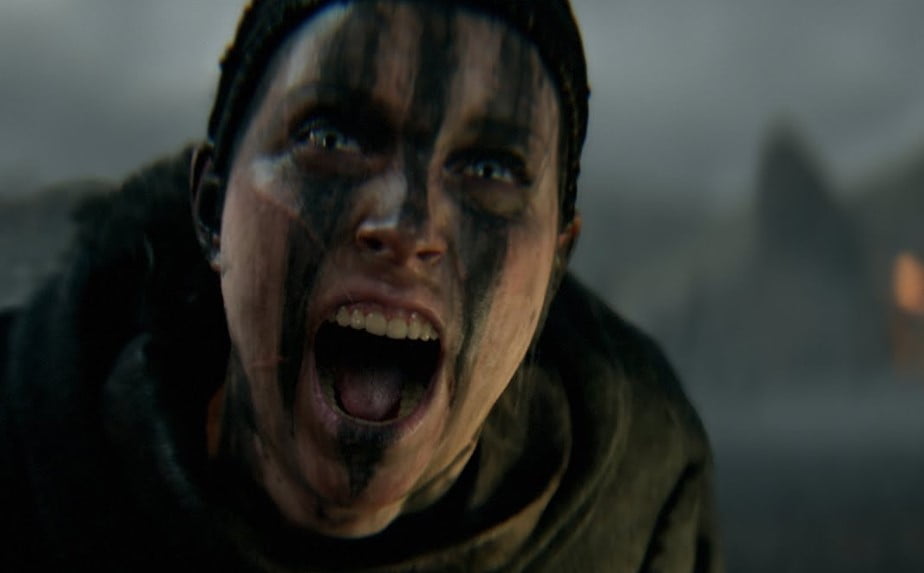AI audio is on the rise and will spark new debates about the value of human effort

Key Points
- AI-generated voices are increasingly becoming an alternative to real actors.
- The well-known game studio Ninja Theory rejects the claim that it would replace human actors with synthetic voices and explicitly emphasizes the value of human work.
- It's another footnote in the debate over the value of human labor that will become more common in the future.
- Overall, however, AI audio is on the rise. There are already numerous examples of synthetic voices being used in major productions as well.
A well-known game studio is allegedly using AI voices for a video game. A clarification includes a commitment to human creativity. It's another footnote in the debate over the value of human labor that will become more common in the future.
It's the very debate that has erupted so vehemently around AI-generated images in recent months. Are AI images art? If so, can they be equated with human art? Are they detrimental to art? Are they even plagiarism, because the AI examines human works during training - in the inspiration phase, so to speak - and then imitates them in trace elements?
Image generation machines like DALL-E 2, Stable Diffusion, and Midjourney alone raise myriad questions about the value and interplay of human and machine labor. These questions are likely to increase because generative AI will not stop at 2D images. Another area it is already tapping into is audio.
Game studio commits to human creativity
GLFH reported a growing concern among video game actors that their work could be taken over by AI. AI voices are already being used in smaller video game projects or for supporting roles.
GLFH specifically mentioned the well-known game studio Ninja Theory, which is a customer of AI startup Altered AI. Smaller studios - ok. But a well-known studio using AI voices for a big title ("Hellblade 2")? That could have a signaling effect.
On Twitter, however, Ninja Theory justified itself when asked if it was actually replacing human work with machine work: The AI voices would only serve as placeholders during game development.
"We then collaborate with real actors whose performances are at the heart of bringing our stories to life," the studio writes, and a little later publishes a short video of two actresses in the recording studio.
Furies Helen and Abbi return to the studio for a binaural performance with Audio Director David. pic.twitter.com/1Q1icp24aO
— Ninja Theory (@NinjaTheory) September 23, 2022
What's interesting about this statement is that the studio explicitly emphasizes the importance of human expression, rather than considering AI-generated voices simply another tool in game development. A similar example that would probably be less criticized is animation, which can also be created with human actors or completely synthetically.
AI audio has long been on the rise
Nevertheless, AI-generated voices are sounding more and more real, making it increasingly difficult for game or movie studios to justify using more expensive human voice actors. The tighter the budget, the greater the likelihood that AI audio will be considered an attractive alternative by studios.
Video game modders, for example, already use AI voices to give their projects the flavor of the original without having to hire the original voice actors. However, this in turn raises copyright issues, as the models have been trained with the voices of the original voice actors without permission.
https://www.youtube.com/watch?v=ZpCR0Urs8Z4&feature=emb_title
AI-generated voices are also already making their way into major TV and film productions such as Top Gun, because actor Val Kilmer was no longer able to voice the "Iceman" himself after suffering from throat cancer. Sonantic, the start-up behind the audio technology, is now part of Spotify.
In the documentary "Roadrunner" about TV star Anthony Bourdain, who died in 2018, a synthetic voice of Bourdain, trained with his original voice, speaks a few sentences.
And most recently, it was revealed that Darth Vader voice James Earl Jones did not voice the lines for the Star Wars series "Obi-Wan Kenobi" himself. Instead, he gave the Ukrainian company Respeech permission to use his voice data to train an AI voice.
AI won't replace human voice actors and actresses, of course, if only because their performances drive AI technology, much like the work of human artists is behind the results of imaging machines. But the technology certainly has the potential to drastically change the creative job market.
AI News Without the Hype – Curated by Humans
As a THE DECODER subscriber, you get ad-free reading, our weekly AI newsletter, the exclusive "AI Radar" Frontier Report 6× per year, access to comments, and our complete archive.
Subscribe now